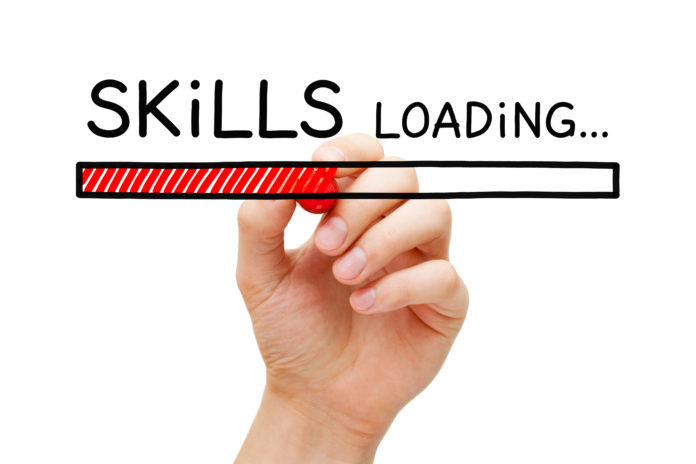CBSE’s handbook is a practical, information-packed guide to acquiring the skills needed for this purpose
Sravanthi Challapalli
Just twenty years young, the current century is part of an era of great change. Be it education, economy, technology or society, developments have been rapid and impact has been substantial. This transformation will continue to influence the way we live, learn and work. Some studies have suggested that thirty years later, children in primary school today will be working at jobs that do not exist now. The fear is that getting hooked to technology will see them losing the human touch, which has many implications for success at school, work and home. As it is, young and old alike spend more
time with their devices than with family and friends. It has affected attention spans and activities such as reading and physical activity. A world rendered unequal by uneven access to technology is also a problem.
As if this was not enough, the COVID-19 pandemic has muddied the mix. It calls for new and different skill sets that can be used to cope with all these changes. And that is what the Central Board of Secondary Education (CBSE) has set out to provide in ‘21st Century Skills’, a handbook it released recently. It says all CBSE stakeholders should have a clear understanding of these skills and should collaborate to equip each learner with them.
Experience in focus
The focus on learning from experience is evident right from the beginning. The handbook points out that some of the greatest and most successful people in the world were neither A graders nor cared enough to remember their grades. However, interpersonal relationships and experiences in various situations have played a role in shaping our personalities. The more skills our experience gives us, the more we gain, it adds.
The book begins by tracing the history of how various entities came by their interpretation and listing of 21st century skills. These include organisations such as Harvard University, WHO, UNESCO and OECD (Organisation for Economic Cooperation and Development). While there is no single definition for the phrase, 21st century skills fall into three broad categories: Learning Skills, Literacy Skills and Life Skills. Critical thinking, creativity, communication and collaboration, vital to manage any situation in life, comprise learning kills. Information literacy, media literacy and technology literacy make up the next category. Flexibility and adaptability, leadership and responsibility, initiative and self-direction, social and cross-cultural interaction make up the life skills list.
The need for these abilities
The next task the handbook does is elaborate on each of these skills. It then explains why they are essential. “Learning is complete and holistic only when a student is able to effectively perform and fulfil his/her responsibilities and duties towards self, school, family, society and above all, the nation,” it adds. It quotes Andreas Schleicher, Director of education and Skills, OECD, who explains why they are necessary thus: “Today, because of rapid economic and social change, schools have to prepare students for jobs that have not yet been created, technologies that have not yet been invented and problems that we don’t yet know will arise.”
The handbook underscores the importance of physiological changes which affect character development. It acknowledges the importance of supporting students through adolescence, when these capabilities will come in handy to face the various challenges. It highlights that these skills are important for special needs children to develop their independence in home, school and community environments.
Ready reckoner
There is a table that provides the milestones in a child’s journey of developing a sense of self and its many dimensions. It establishes their relationship to the 21st century skills that are crucial to such evolution. For instance, between the age of three and five years, a child must be able to understand and express oneself, acquire the core life skill of self-awareness, the 21st century skill of communication and learning outcomes that include the ability to express needs and emotions and recognise safe and unsafe touch.
The rest of the handbook is dedicated to detailing the many ways and strategies in which these 21st century skills can be imparted to learners. The chapter on critical thinking opens by telling readers what it comprises: Ask yourself why a certain subject/issue is important, whether there is something that is missing from their understanding of it, what the source of the information is, who is saying it, what more could it mean, and so on. These questions are necessary to train the mind to arrive at a comprehensive exploration of the subject. It then drills down into the specific components of critical thinking. Next, it offers strategies and methods by which one can develop this competence. Impromptu debates and riddles that test students’ thinking skills are two of them.
The lion’s share of the book is taken up by the discussion of the many-faceted skills and ideas and activities suggested to foster them. One, for example, is a ‘no-talk day’ to get students used to understanding non-verbal cues such as facial expressions, playing Dumb Charades, a guessing game, to teach collaboration and team spirit, and developing apps and websites to give them hands-on exposure to information technology.
In addition to this, other facilitation methods suggested to develop 21st century skills include Yoga to develop mind-body balance, learning from ancient Indian texts such as the Vedas, Upanishads and Thirukkural to absorb the principles of good living, puppetry and jingle-writing to improve creativity and meditation, which it clarifies is not about religion but implies keen focus of one’s awareness on any activity, be it singing, painting, running or writing.
The handbook also mentions CBSE’s own efforts at promoting these skills, such as art-integrated teaching, its focus on experiential learning, its Heritage India quiz and its reading challenge.







